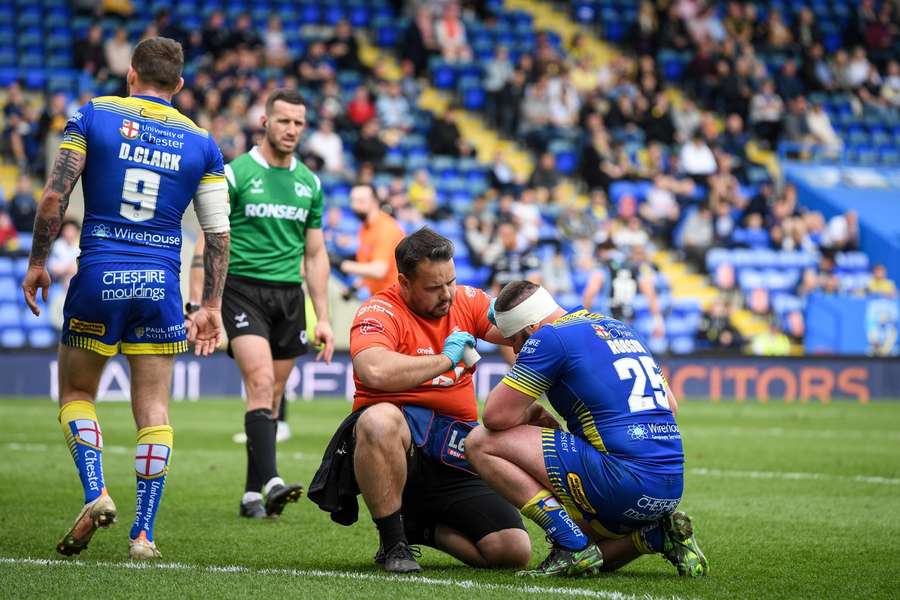Doctor says rugby league player care 'head and shoulders' above football

Concussions came into the spotlight earlier this year when a team of lawyers representing 75 former players filed a claim against the Rugby Football League (RFL), for negligence and taking "unreasonable action" to protect them from potential permanent brain injuries.
Rugby league has sought to clamp down on its concussion protocol over the last 10 years and has continued to make great strides towards improving player care in the sport.
Sampson feels rugby league is doing just that and the education on brain injuries has been effective from the professional game all the way down to grassroots level.
“The people in our game and involved in rugby league, especially at our level now, are really experienced even though it looks to the untrained eye that I’ll be just stood there in gloves and with a medical bag not doing very much,” Sampson told The Giants Podcast.
“I just think it’s the knowledge that we’ve got now, so with knowledge always comes a change in practice and I think as a sport, as medical people involved in it you’ve got to look after the prize possessions and they’re the guys who play it, that goes right down to kids and amateur, and all the way through professional.
“Whatever team you’re playing, nobody goes on the pitch to be injured, nobody goes on to be concussed. We went on a really interesting talk at the beginning of the season with the RFL, and coaches were invited and S&Cs (strength and conditioning coaches) were invited.
“It’s everyone’s problem now, it’s not just a medical thing, you speak to our coaches and they’re really switched on with concussion and knowing what the signs are and that’s taken a lot of work from the RFL right the way down on just educating people about it, and what the potential could be because we don’t know and that’s the scary thing.”
Quizzed on his thoughts on rugby league's medical safety standing next to other sports, Sampson insisted it is ahead of those that have more financial backing like football.
"For all intents and purposes we’re sort of a northern sport but the things that we’re doing in terms of research and in terms of protecting players and actually taking things seriously, I think we’re head and shoulders (above football)," he continued.
“It’s always difficult with concussion. If you look back in the day it was always a case of stand up, bucket and sponge on the back of the neck, ask them ‘are you ok’ then ‘yeah I’m fine’ and they’d crack on. But now if you’ve had a concussion or suspicion of concussion, you stop being able to make that decision yourself so that’s why HIA came in and all the evidence needs to be in line."

